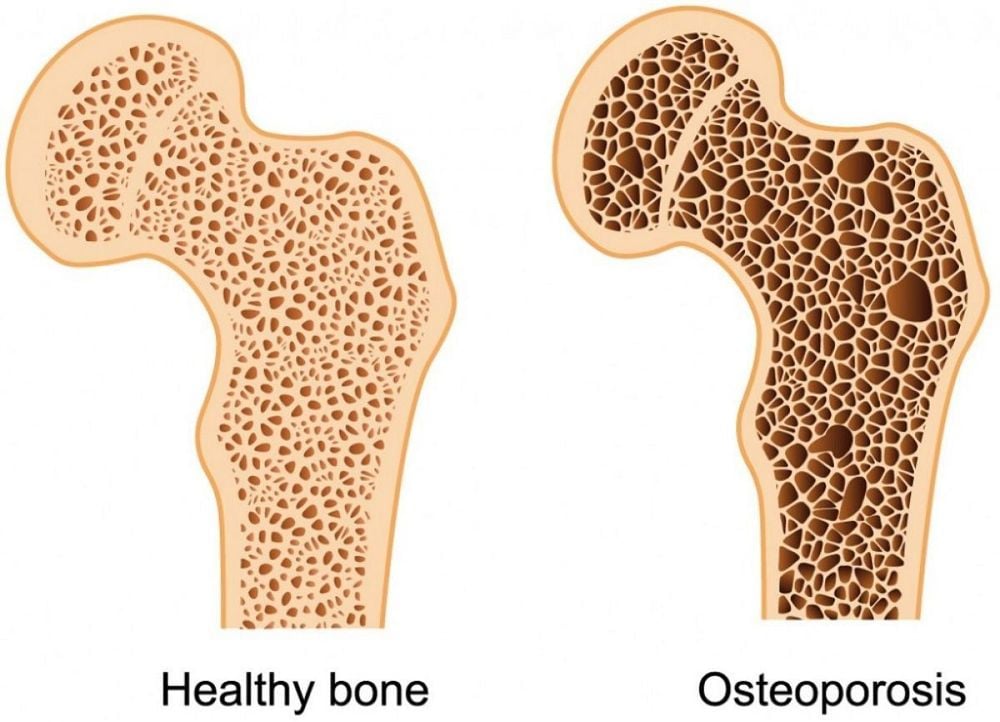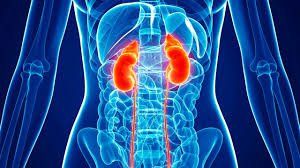This is an automatically translated article.
Autoimmune hyperthyroidism is a disease related to an overactive thyroid gland, which causes excess production of thyroid hormone in the body. This can cause some serious health complications, including thyroid storm, heart rhythm disturbances, osteoporosis or problems during pregnancy.1. What is autoimmune hyperthyroidism?
Autoimmune hyperthyroidism also known as Graves' disease, Graves' disease, Parry's disease, or diffuse toxic goiter. This is an autoimmune disease, involving disorders of the immune system, leading to an overactive thyroid. The thyroid gland is an endocrine organ located in the neck, which plays an extremely important role in the production of thyroid hormones that help control important body activities, including metabolism, regulation blood calcium levels, body temperature regulation or nervous and cardiovascular system functions. If the body has too much of this hormone, it can lead to autoimmune hyperthyroidism.2. Causes of autoimmune hyperthyroidism
Autoimmune hyperthyroidism often stems from disorders of the immune system. This means that the body's immune system gets confused and attacks healthy tissue. With Graves' disease, the thyroid gland will be affected, thereby causing the function of this endocrine gland to work abnormally and secrete an excessive amount of thyroid hormone.
Autoimmune hyperthyroidism is a disease that runs in families, however it is unlikely to infect others.

Bệnh cường giáp tự miễn có tính di truyền trong gia đình
3. Symptoms of autoimmune hyperthyroidism
When you have autoimmune hyperthyroidism, you may experience the following signs and symptoms:Frequent loss of concentration Anxiety, irritability, fatigue, restlessness Abnormal growth, especially in men Eyeball protrusion Vision problems: including blurred vision, double vision, loss of vision, eye pain, eyelid swelling or eye inflammation Goiter due to enlarged thyroid gland Sensitivity to temperature Excessive sweating Increased frequency of urination Rapid appetite Unexplained weight loss Tremors Tachycardia, palpitations Menstrual cycle disorders Decreased libido, erectile dysfunction Frequent bowel movements In addition to the listed symptoms listed above, there may still be some other signs not mentioned. If you find any abnormality, visit your doctor for timely diagnosis and treatment.

Sụt cân là triệu chứng phổ biến ở bệnh nhân cường giáp tự miễn
4. Factors that increase the risk of autoimmune hyperthyroidism
Here are the main factors that contribute to an increased risk of autoimmune hyperthyroidism, including:Gender: Women have a higher risk of developing Parry's disease than men. Age: This disease tends to affect mainly people under the age of 40. Problems with immune disorders: including type 1 diabetes or rheumatoid arthritis. People with these conditions are more likely to develop autoimmune hyperthyroidism. Family history: this is also one of the main causes of Basedow's disease. You will have a higher chance of getting the disease if a family member has this disease. Some other factors: include smoking, unhealthy diet, stressful lifestyle, or being pregnant.
5. Complications of autoimmune hyperthyroidism
Autoimmune hyperthyroidism can cause some of the following dangerous complications:
Pregnancy problems: Graves' disease can cause serious complications for pregnant women, such as premature birth. , miscarriage, poor fetal growth, fetal thyroid dysfunction, heart failure, and preeclampsia. Cardiac Arrhythmias: If not treated early, autoimmune hyperthyroidism can lead to arrhythmias, along with changes in the structure and function of the heart muscle, that make the heart unable to function properly. pump blood to all parts of the body. This is also known as congestive heart failure. Thyroid storm: this is a life-threatening complication. Thyroid storm is known as a “thyrotoxic crisis,” which occurs when severe hyperthyroidism is left untreated. Brittle bones: Bone health often depends in part on calcium and other essential minerals. However, the secretion of too much thyroid hormone can interfere with the body's synthesis of calcium into the bones, which in turn leads to weak bones, osteoporosis and easy fractures.

Biến chứng thường gặp của bệnh cường giáp tự miễn là loãng xương
6. Diagnosis of autoimmune hyperthyroidism
To accurately diagnose autoimmune hyperthyroidism, the doctor will first gather information about the patient's medical history as well as current symptoms. In addition, some tests are also ordered, including:Blood tests to measure thyroid hormone Iodine radiation Ultrasound CT X-rays

Siêu âm tuyến giáp giúp chẩn đoán bệnh cường giáp tự miễn
7. Treatment of autoimmune hyperthyroidism
In cases where you have signs and symptoms, including an irregular heartbeat, feeling anxious, restless, or sweating a lot, your doctor may recommend beta-blockers to improve your problems. this topic.
Certain beta blockers, such as:
Atenolol (Tenormin) Nadolol (Corgard) Propranolol Metoprolol (Lopressor, Toprol-XL) Beta blockers are not usually prescribed for patients with asthma, because of the type of medication. This can trigger asthma attacks. In addition, it can also interfere with diabetes management. In addition, a number of other methods are commonly applied in the treatment of autoimmune hyperthyroidism, including using drugs, performing surgery or radioactive iodine therapy. These methods can help control and reduce high thyroid hormone levels in the body to a normal state. However, one disadvantage of radioactive iodine therapy is that the patient is forced to take thyroid hormone replacement for the rest of his life.
For patients with autoimmune hyperthyroidism who experience eye problems such as double vision or blurred vision can also be treated with radioactive iodine, drugs, and surgery.
However, patients should consult a doctor before making the right treatment option, because radioactive iodine therapy is often less effective and may cause some damage to the eyes. . In addition, you can use eye drops or steroids that suppress the immune system to alleviate eye swelling and irritation.

Khi xuất hiện những triệu chứng của bệnh cường giáp tự miễn, bạn cần đến gặp bác sĩ để được chẩn đoán và điều trị
8. Methods to help control autoimmune hyperthyroidism
To effectively prevent and manage autoimmune hyperthyroidism , making lifestyle and lifestyle changes can help. This includes:
Follow a healthy diet: such as getting vitamins through foods such as fruits and vegetables, limiting fat consumption, alcoholic beverages or foods processed foods Make a habit of exercising regularly, at least 30 minutes a day Take the medicine exactly as prescribed by the doctor. Avoid indiscriminate use of drugs, quitting halfway or taking the wrong dose. This not only makes the drug ineffective, but also makes the condition worse. Schedule regular eye exams Give up smoking Vinmec International General Hospital is one of the hospitals that not only ensures professional quality with a team of leading medical doctors, a system of modern equipment and technology but also stands out with comprehensive and professional medical examination, consulting and treatment services; civilized, polite, safe and sterile medical examination and treatment space. Customers when choosing to perform tests here can be completely assured of the accuracy of test results.
If you have a need for consultation and examination at the Hospitals of the National Health System, please book an appointment on the website for service.
Articles refer to sources: mayoclinic.org, webmd.com
Please dial HOTLINE for more information or register for an appointment HERE. Download MyVinmec app to make appointments faster and to manage your bookings easily.













